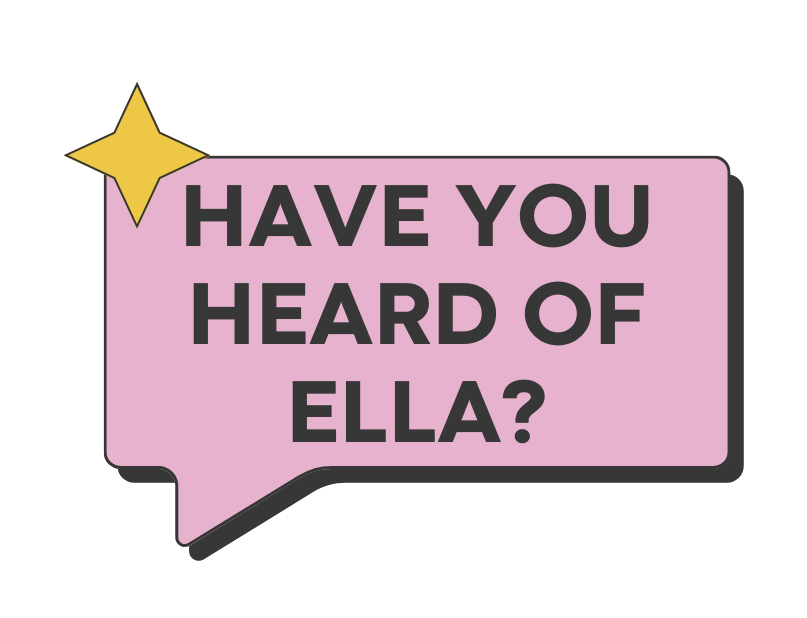- Anna Walter
- Issue brief
- May 30, 2023
- Barriers to Care, Reproductive Health
The Other Morning-After Pill
Increasing access to ella® in a post-Roe landscape
Despite being effective for longer than Plan B and working better for women of diverse sizes, ella® is unavailable over-the-counter and under-prescribed by physicians. Education about and accessibility to the most effective forms of EC is more critical now than ever before.
What is ella®?
Ella® (ulipristal acetate tablet, 30mg) is a form of oral emergency contraception (EC), or “morning after” pill.
Similar to Plan B One-Step® (levonorgestrel tablet, 1.5mg), it comes in pill tablet form and is intended to prevent pregnancy in people with uteruses whose birth control has failed or who have had unprotected sex.
Unlike Plan B, which is available over-the-counter with no age restrictions or ID requirements, ella® is only available by prescription.

There is significant confusion surrounding all forms EC, ella® included. Much of it is the result of misinformation about whether or not EC is a form of abortion. Clinical trials have revealed that ella® does not affect already established pregnancies, meaning that it is not an abortifacient drug. However, because the FDA label for ella® states that it does not only stop ovulation but also makes it harder for a fertilized egg to attach to the uterine wall, it has drawn criticism from anti-abortion groups who believe preventing a fertilized egg from implanting is a type of abortion.
Studies have found that ella® does not inhibit implantation–it works by preventing ovulation. It can not cause an abortion, and it will not have any effect in a case where an egg has already been fertilized. Importantly, the FDA recently changed the label of Plan B to indicate that it does not affect existing pregnancies–an important step in ensuring continued access to EC in a post-Roe United States. The label of ella® has not been similarly updated.
Ella® is of special interest to Metriarch because, despite it being effective for longer than Plan B (5 days versus 3 days) and for women of more diverse sizes (155 pounds versus 195 pounds), it is under-prescribed by physicians and unavailable over-the-counter.
ella® is underutilized and over-politicized.
If it’s so great, why isn’t ella® more widely accessible?
Most immediately, it is not available over-the-counter like Plan B. People who want to take EC generally choose to go to their local drugstore instead of making an appointment with their doctor.
Furthermore, people who do not want others to know they are taking EC are far more likely to just go to a drugstore to procure it – especially minors who cannot go to the doctor without their parents knowing, or those who fear repercussions if it was discovered that they are sexually active or trying to prevent pregnancy.
However, even in clinical settings, Plan B is used more often.
A 2020 study found that most (80.4%) OB/GYNs offered Plan B for EC, while only 17.9% offered ella®. Additionally, only 29% offered patients a copper IUD for EC, demonstrating that physicians do not always offer patients the most effective forms of EC.
There are many reasons why physicians may under-prescribe ella®. A 2017 study found that fewer than 10% of pharmacies in ten large US cities actually stocked ella®, so there is a larger accessibility issue at play. Physicians can’t prescribe something that isn’t readily available, especially for something as time-sensitive as EC.
Additionally, there seems to be a gap in physician education about ella®. A 2020 study found that OB/GYNs working at university faculty practices were more likely to prescribe the most effective forms of EC (copper IUD and ella®), rather than less effective ones like Plan B and Combination Hormonal Contraceptives (CHC). The study’s authors hypothesized that this was because clinicians in a university setting tend to be more familiar with the latest clinical recommendations.
Political controversy is another factor. The battle over abortion access has often spilled into the realm of EC, causing the proliferation of misinformation, confusion, and fear.
A recent example is a 2021 attempt by Missouri lawmakers to ban the use of taxpayer dollars for IUDs and EC pills. The groups behind these type of restrictions consider EC methods abortifacients due to the fact that they may be able to prevent a fertilized egg from implanting in the uterus. It’s important to note that this belief is not in line with the medical definition of pregnancy, which states that pregnancy begins after a fertilized egg is implanted in the uterus.
Although this effort failed in Missouri, there are fears that similar legislation will resurface now that Roe v. Wade has been overturned. Similar laws exist in Texas, which bans state family planning programs from paying for EC. Arkansas, Mississippi, Missouri, and Texas have all banned Medicaid from being used at Planned Parenthood, meaning that many low-income people in those states have lost access to one of the nation’s largest providers of birth control, including EC.
Between the constantly-changing legal landscape of reproductive healthcare access and the spread of false information about what EC is (and is not), it’s little wonder people are confused and anxious. For an already under-utilized option like ella® …
Education about and accessibility to the most effective forms of EC is more critical now than ever before.

Anna Walter
Anna started working with Metriarch as an intern and has provided support as a remote writer and researcher since. She graduated from the College of Charleston with a BA in History and International Studies and teaches in Seattle starting fall 2023.

